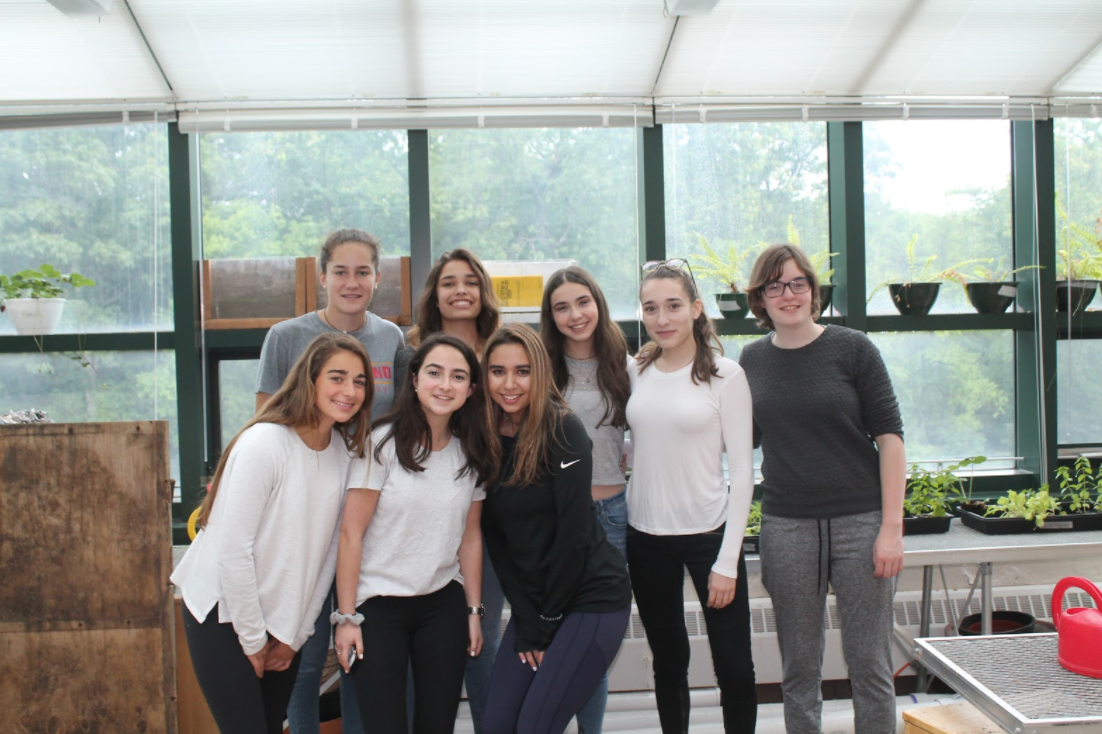By Megan Doyle ’18
Although the seniors have cleared out of the building, leaving AP classes with only a few juniors, the lessons are far from over. In Mike Aitkenhead’s period two AP Environmental class, the eight remaining juniors have tackled a difficult project: making and selling environmentally-friendly fertilizer.
“We were looking for something to do that would make a difference in the environment, that was achievable in a short time, and that brought together a lot of what we had learned this year,” Claudia Guetta ’18 said.
After learning about Terracycle, a global recycling company that offers programs similar to what the class is doing, the eight girls decided to try it themselves and bring a zero-waste alternative fertilizer to Westport.
“We were inspired by our unit in hazardous waste when we watched a documentary about companies that are working against creating excess waste in our economic system built on consumerism, which often entails buying things and throwing them out,” Brooke Kessler ’18 said.
Making the fertilizer is a quite complicated process. It started with ordering 2000 worms and putting them into a bin with soil and compost brought from home.
“We collect the dirt after a week or so which contains the worm castings, and we take the worm casting and soil and steep it in water for over 24 hours,” Sophie Betar ’18 said. “This makes a liquid fertilizer that has a ton of nutrients in it.”
Then comes the testing. In the greenhouse, where the worms and fertilizer are kept, the class also has access to many plants and greenery. According to Guetta, they’re currently comparing the growth of plants with fertilizer to ones without fertilizer.
“It’s definitely a lot of work to gather all of the information necessary to educate the public, to do the trials with the plants, and to make the tea, but it’s really rewarding to know we are making a product that can really help the environment,” Guetta said.
But making and testing the fertilizer isn’t the only thing these girls are learning. They’re also experiencing the business side, including marketing, social media, educating the public, pricing and planning events.
“I think that the business side is debatably the hardest part,” Betar said. “It’s so new to all of us, and it is very meticulous and there is a lot that needs to be considered in that respect.”
Despite the difficulties, the eight junior girls are proud of the work they’ve done and are excited to share it with the public. Last Sunday, June 10, they presented their product at the Temple Israel zero waste event from 11:00 a.m. to 4:00 p.m.













































